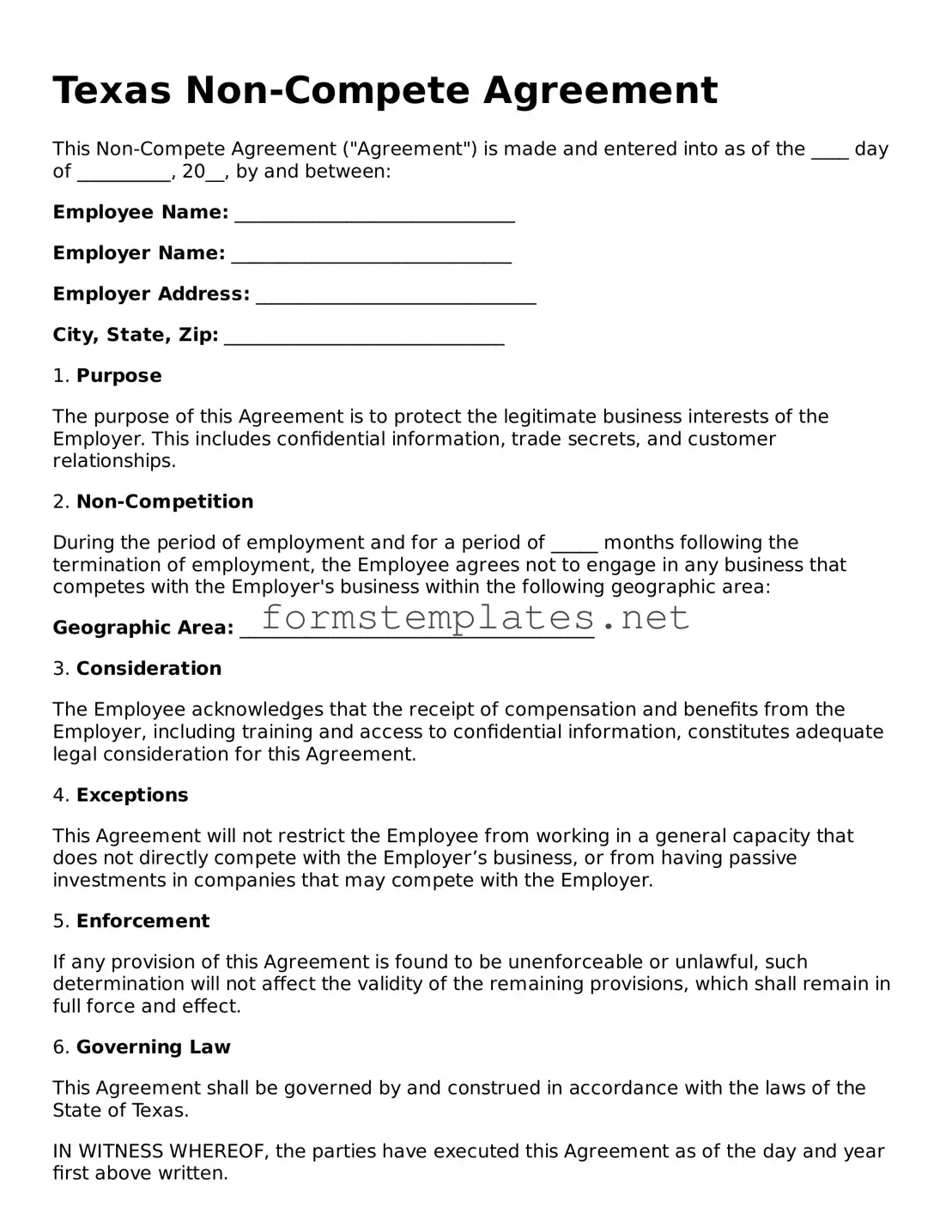Attorney-Approved Texas Non-compete Agreement Template
A Texas Non-compete Agreement form is a legal document that restricts an employee from working for competitors or starting a similar business within a specified timeframe and geographic area after leaving their job. These agreements are designed to protect a company's trade secrets and proprietary information. Understanding this form is crucial for both employers and employees to ensure fair practices and compliance with Texas law.
Open Editor Now

Attorney-Approved Texas Non-compete Agreement Template
Open Editor Now

Open Editor Now
or
⇓ PDF Form
Your form still needs attention
Finalize Non-compete Agreement online — simple edits, saving, and download.